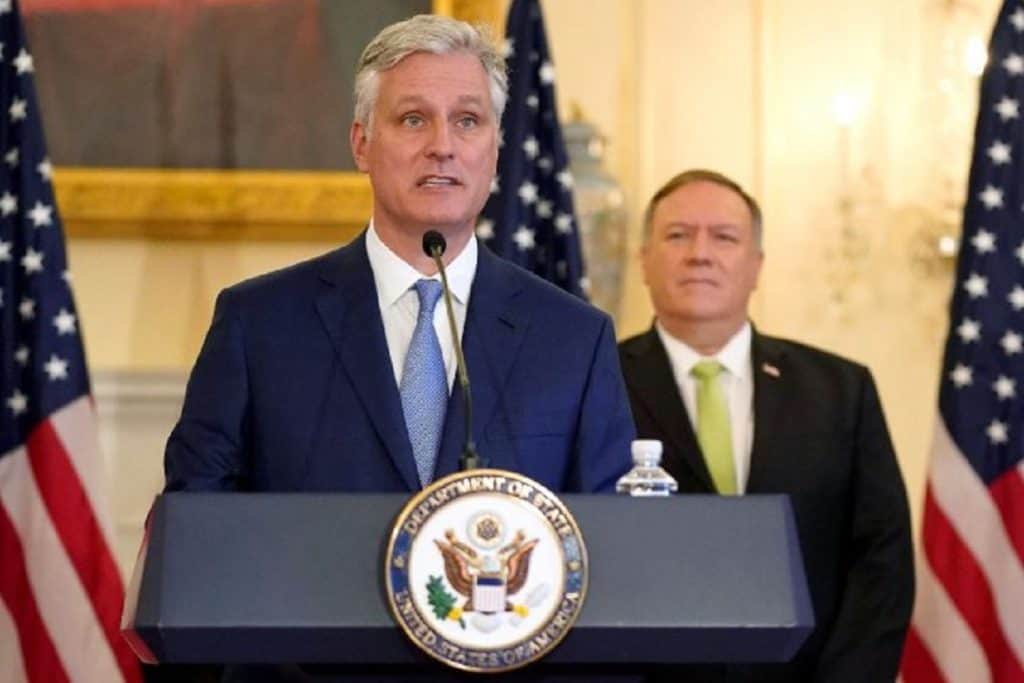By Prof. Engr. Zamir Ahmed Awan
At an extremely critical time, as the ongoing talks between India and China to defuse border tensions have been undecided as of now, the United States has said that the time has come to accept that dialogue and agreements will not resolve the question between China and India.

United States National Security Advisor (NSA) Robert O’Brien blamed China, saying it attempted to “take” control of the effective line of control (LAC) with India by force as part of its regional aggression.
The US, being a superpower, is expected to promote peace and stability. It was desired that the US try to cool down both countries and persue for restraining. A positive role of the US may avert any disaster in this part of the world. Unfortunately, US behavior is contrary. Remarks by National Security Advisor (NSA) are adding fuel to already existing tension between the two most populous countries, armed with Nuclear weapons. His comments are openly encouraging India for armed conflict.
Although, Sino-Indian differences goes back to several decades and has already fought a full-scale war in 1962. Minor skirmishes were a matter of routine along the Line of Actual Control (LAC). But the recent tension between the two countries heightened following the June 15-16 Galwan Valley conflict in which 20 Indian Army soldiers, comprising a Colonel, were killed. Since then, both sides have held several series of discussions at military and diplomatic levels to end the stalemate, but there has been no substantial headway as of now.
NSA further said that the Chinese territorial aggression is also real in the Taiwan Channel, where the PLA (People’s Liberation Army) Navy and Air Force continue to conduct intimidating fighting drills. This statement aims to enlarge the conflicts and keep China over-engaged with its neighbors on multiple fronts. The US could not counter China alone and trying to use India and Taiwan to engage China, divide Chinese focus, and weaken China. Although, The US agreed on a One-China policy at the time of establishing the People’s Republic of China, but the NSA is using Taiwan against China cunningly.
The NSA went beyond and criticized OBOR: “Beijing’s signature international development program, One Belt One Road (OBOR), involves impoverished companies taking on misty and unsustainable Chinese loans to pay Chinese firms employing Chinese laborers to build their infrastructure,” he said, adding many of these projects are shoddily built and are “white elephants.
While the facts are quite different, as China has not forced any country for taking loans, nor coerced any country to opt for any project. At the same time, China has extended its cooperation with all willing partners in developments based on a win-win approach. At least, in the case China-Pakistan Economic Corridor (CPEC), Pakistan is a beneficiary of Chinese mega Initiatives “One Belt One Road (OBOR). All projects under CPEC were discussed mutually and agreed upon by both sides. All projects under CPEC were vital for Pakistan, especially the Power Projects were beneficial for Pakistan, as Pakistan was suffering from a shortage of electricity, and the nation was living in blackout several hours on a daily basis. But after the completion of Power Projects under CPEC, there is hardly any shortage of electricity in the country.
There are few more power projects under execution or in the pipeline, which will meet future requirements too. A network of Motorways and Highways was constructed in the length and width of the country under CPEC, which has improved transportation, resulting in enhanced economic activities. OBOR was very much fruitful for Pakistan, and the people of Pakistan support Chinese mega initiative OBOR. Likewise, other OBOR family nations are happy with the development projects with Chinese collaboration.
On the one hand, the US is encouraging India and other regional countries for armed conflicts, while the previous United States national security advisor John Bolton has alleged that if the Sino-India border tensions escalate, there is no assurance that US President Donald Trump will back India against China.
It is evident that the US may play dirty tricks to make the two most populous countries to go for war, and then the US withdraw its support from India. It is up to India to think smartly and avert any misadventure, as India cannot compete with China in either way alone. Should India depend on the US for its war against China or re-evaluate the whole scenario again.
Author: Prof. Engr. Zamir Ahmed Awan, Sinologist (ex-Diplomat), Editor, Analyst, Non-Resident Fellow of CCG (Center for China and Globalization), National University of Sciences and Technology (NUST), Islamabad, Pakistan.
(The views expressed in this article belong only to the author and do not necessarily reflect the editorial policy or views of World Geostrategic Insights).







